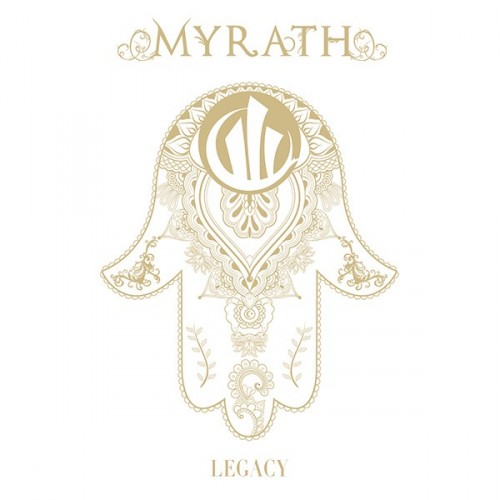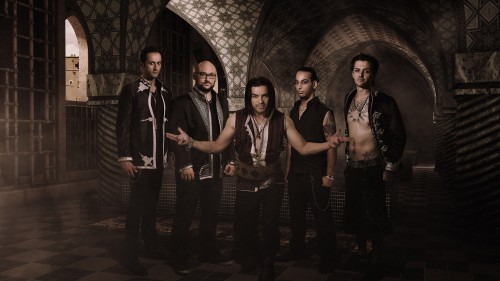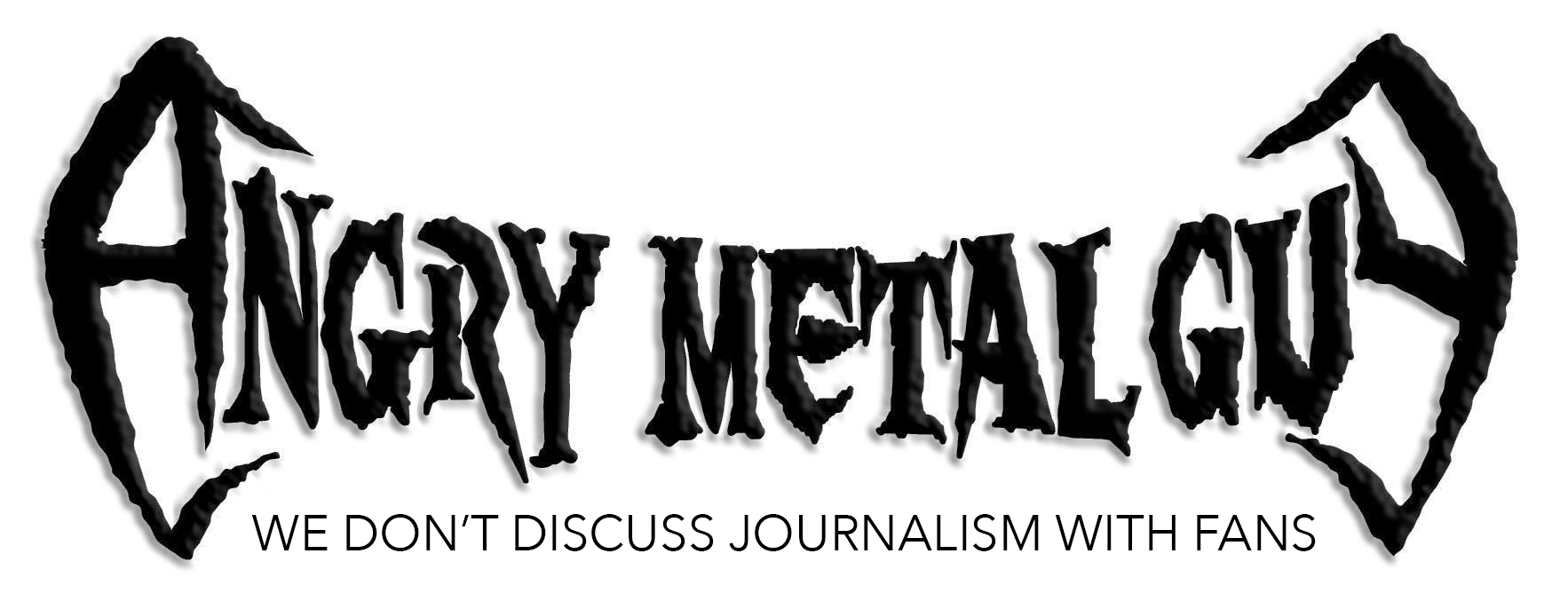 Myrath makes what they call “Tunisian metal.” While this is a totally legit way of framing it, it’s also fair to say that they really make a kind of orchestral power metal laced with the sounds and stories of North Africa. Despite having debuted in 2007, I’ve only previously listened to 2010’s Desert Call. It might be that I had just gotten to the album directly after reviewing the absolutely transcendent The Never Ending Way of ORwarriOR by Orphaned Land, but the album didn’t stand up for me and I didn’t really follow up on them. Legacy marks the band’s first album since 2011’s Tales of the Sands and five years has done these Tunisians-by-way-of-France (or French-by-way-of-Tunisia?) a hell of a lot of good.
Myrath makes what they call “Tunisian metal.” While this is a totally legit way of framing it, it’s also fair to say that they really make a kind of orchestral power metal laced with the sounds and stories of North Africa. Despite having debuted in 2007, I’ve only previously listened to 2010’s Desert Call. It might be that I had just gotten to the album directly after reviewing the absolutely transcendent The Never Ending Way of ORwarriOR by Orphaned Land, but the album didn’t stand up for me and I didn’t really follow up on them. Legacy marks the band’s first album since 2011’s Tales of the Sands and five years has done these Tunisians-by-way-of-France (or French-by-way-of-Tunisia?) a hell of a lot of good.
Legacy is unashamedly poppy. There are times when I’m feeling like I’m listening to metaled-up versions of future Eurovision-winning Azerbaijan songs. That this isn’t meant as a slight, though, likely says uncomfortable things about my metal cred.1 It’s tough to deny that Myrath does an excellent job of blending “traditional vocal styles”2 and sounds from their Tunisian heritage with the swooping Arabian orchestras and a power metal base. But similar to Yossi Sassi’s post-Orphaned Land material, there are times when Myrath lands firmly in MENApop,3 which can be slightly disorienting for the avid metal fan trying to protect his precious metal cred. “Endure the Silence,” which starts with Casablanca piano, has an addictive bridge and an epic chorus. The album’s second track “Believer” has a hook so sharp that Max Martin probably called them to give them props.
Myrath also drives into film score territory with remarkable alacrity. The intro to “Through Your Eyes” could be the soundtrack to a Hollywood blockbuster (likely involving mummies and rampant orientalism), while “The Unburnt” sees them shooting for the heavier side of their sound with the opening riff, but rock an artful, orchestral bridge here. And throughout the album the band knocks out interesting musical moments; technical, but poppy, walking the fine line that is so hard to navigate. Reminiscent of Angra’s Secret Garden the songwriting here is remarkably strong. Despite being poppy, it doesn’t lose its swagger with repeated listens. Legacy never feels like a sugar high. Rather, it’s the kind of album that the band just simply crafted to perfection. Each song is razor sharp and immediate, but surprisingly deep.
Unfortunately, Myrath is way too invested in a hypermodern production sound, including borderline Amaranthe/Stratovarius tinkly techno keyboards lacing the opening track and other parts of the album. The production is dense and clean, giving the MENA-pop tag meaning in a way little else could. I love well-produced albums, but there’s something that feels artificial about this level of polish. Second, while the album clocks in at an hour, it doesn’t feel too long. It also doesn’t feel so much like an “album” as a collection of songs. Rather than making the ebbs and flows work with the tracklisting, there are moments on Legacy where I would actually look up to double check that I was listening to the same record. It’s slightly jarring at times, and it suggests that the band could probably have dropped a couple of the slower tracks (“Duat,” for example), or some of the heavier ones, to double down on the slick feel.

Of course, Myrath is a band loaded with talent, rendering the production to not much more than a fly in the ointment. But that fly still draws attention away from the instrumental tapestry. Because of the tonality, the bassist Anis Jouni and the new drummer Morgan Berthet become musical decorations—Berthet even delivers a killer performance, which possibly peaks on “Endure the Silence.” But they blend into the background, never being given room to shine. Rather, the focus narrows in on keyboardist and orchestral director Elyes Bouchoucha’s gorgeous arrangements and Malek Ben Arbia’s stellar shredding. Both the keys and guitars offer context to and bolster Zaher Zorgati’s dynamic vocals. Zaher is Legacy’s star without a doubt. While the production guarantees this, his vocals would shine without it. The vocals balance between Jasper Steverlinck’s (Guilt Machine) purity and poppy poise and early Russel Allen’s range and growl. Zaher, however, throws in an extra twist by blending in traditional vocal inflections which really define Myrath’s unique sound.
Taken as a whole, Legacy is an album that sets a high bar for Myrath’s future releases. It’s slick, well-written, fun to listen to, and laced with awesome performances. Legacy ain’t gonna get you metal cred—no, your true metal friends will definitely mock you mercilessly for enjoying this—but if you like your music driven, fun and catchy, with that amazing Arabian orchestral style punctuating the music, Legacy fills that niche.
Rating: Very good!
DR: 6 | Format Reviewed: 320 kb/s mp3
Label: Nightmare Records
Websites: facebook.com/myrathband
Out Worldwide: February 12th, 2016

















